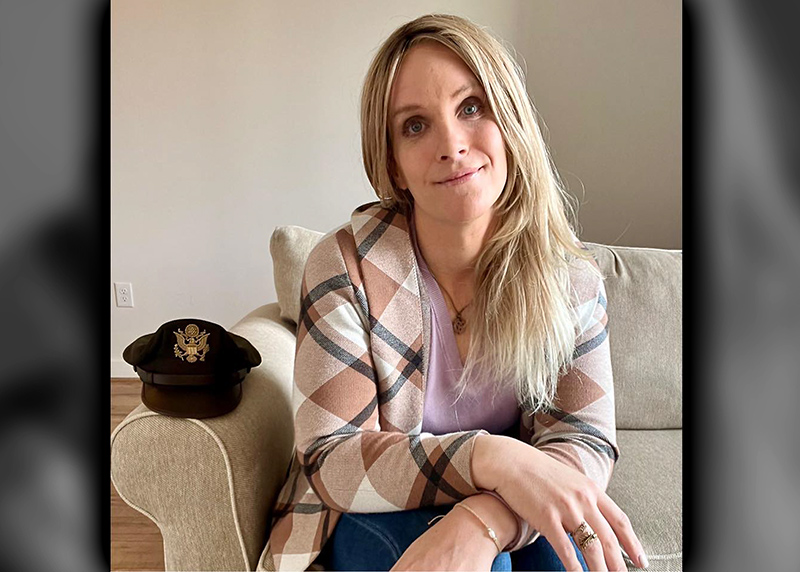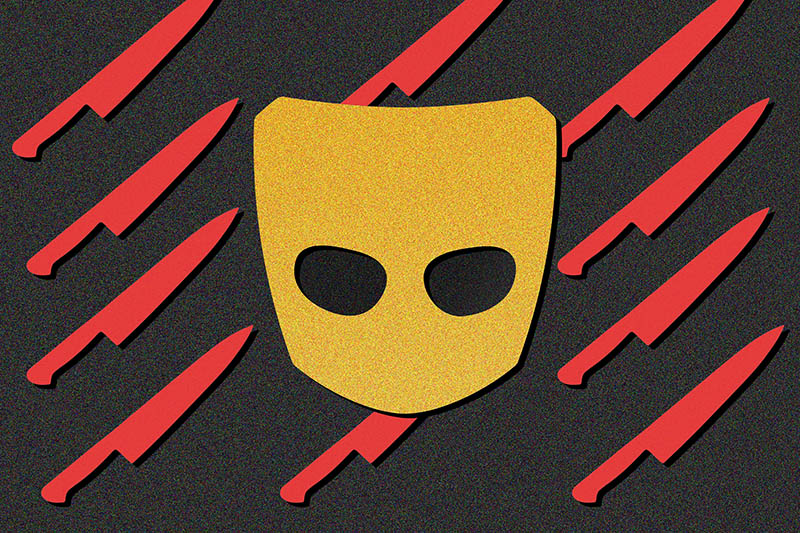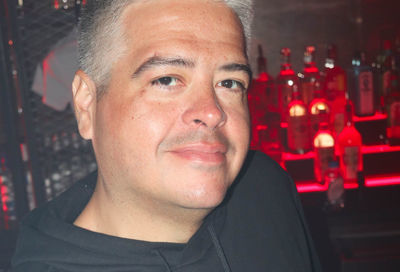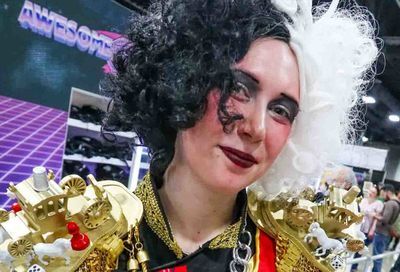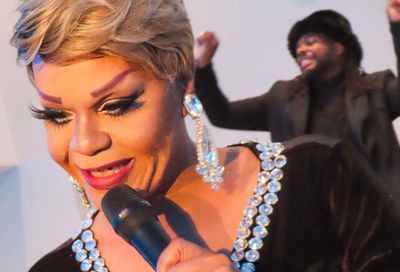We're Here, We're Queer. Really.
''Queer'' may be fraught with history, but it points to a fundamental truth of our LGBT lives
When I titled my book on straight/LGBT communication Queer Questions, Straight Talk, I expected some freak-out. My publisher, a straight man deeply committed to LGBT rights but totally mystified by the subtleties of our shifting rules and sensibilities, grilled me: “Are you sure this won’t piss anyone off? Is ‘queer’ okay now?” Well, no and no, I said, but I’m a sucker for alliteration. More to the point, I didn’t care that much if I ruffled some queer feathers, because the whole point of my book was to get over being uptight about this stuff. Words matter of course, and as an unrepentant dictionary wonk, I will fight to the death on that point. But we as a community have been in a naming quagmire for far too long.

Abby Dees
Here’s some history: When we finally stopped being homosexuals, we became gay. I remember when people would say, “Gay was such a nice word before the homosexuals ruined it.” I used to argue that that isn’t what happened, but now I’ve decided we did in fact appropriate the word, and what a fabulous political act that was, even if we weren’t thinking politics at the time.
Then gay become gay and lesbian when gay women got sick of still fetching coffee for men, albeit well-dressed and irony-endowed men. Then when bisexuals got sick of being considered half-gays, the name grew again. You get the point. With each change, someone somewhere grumbled about the unwieldiness of it all (LGBT, LBTGQQISTS, etc.) and whether we (whoever “we” were) actually had anything in common with “them” (“them” being whatever new group was being added). The subtext was always, “Do we really want them in our club?”
The name challenge came to a head in the late ’80s and ’90s when trans folks demanded representation. All of a sudden, rainbow people marching for tolerance in the streets were screaming at each other. Not all, of course, but things seemed to reach a tolerance nadir when the Michigan Womyn’s Music Festival leadership declared their lesbian Woodstock a womyn-born-womyn zone. In other words, if you possessed a homegrown penis at any time in your life, you weren’t womyn enough to join the camping and singing fun.
It’s no wonder that around then “queer” became an option and not an epithet. Young queers, especially, declared our infighting nothing more than scrambling for crumbs within a culture that saw us all as gender deviants, whatever our inclinations. Point was, we were all “queer” – so let’s claim it. If we could appropriate gay, why not queer?
Unfortunately, it’s hard to remove the sting from a word that once got you arrested or sent for psychiatric evaluation – which might be why there was a split between those pierced Queer Nation kids and their disco-era elders. Queer never took off outside of academia.
I believe that queer still scares us because it points to a fundamental truth of our lives: that however domesticated and khakied we are still gender outlaws, every one of us. We are breaking a basic societal rule: If you’re a boy, or a girl, act like it. Thus when we fight for marriage, indeed we’re talking about commonsense equality, but we are also demanding the right to be queer – “beyond the expected,” as my thesaurus says – and legitimate. This is a radical act, even if you’re a Meghan McCain queer.
So, back to my book title. I didn’t write a radical book – in fact, I wrote it mostly for straight people who’ve had zippo LGBT exposure. I knew I’d lose a few potential readers with Queer on the cover, but maybe I also hoped we’d stop fearing the queer a little if we looked it squarely in the face. So Queer Questions it remains, in big black font.
Abby Dees is a Los Angeles-based civil rights attorney, speaker, editor and author. She lives in Los Angeles with her partner Traci. For more information visit queerquestionsstraighttalk.com.
Support Metro Weekly’s Journalism
These are challenging times for news organizations. And yet it’s crucial we stay active and provide vital resources and information to both our local readers and the world. So won’t you please take a moment and consider supporting Metro Weekly with a membership? For as little as $5 a month, you can help ensure Metro Weekly magazine and MetroWeekly.com remain free, viable resources as we provide the best, most diverse, culturally-resonant LGBTQ coverage in both the D.C. region and around the world. Memberships come with exclusive perks and discounts, your own personal digital delivery of each week’s magazine (and an archive), access to our Member's Lounge when it launches this fall, and exclusive members-only items like Metro Weekly Membership Mugs and Tote Bags! Check out all our membership levels here and please join us today!



